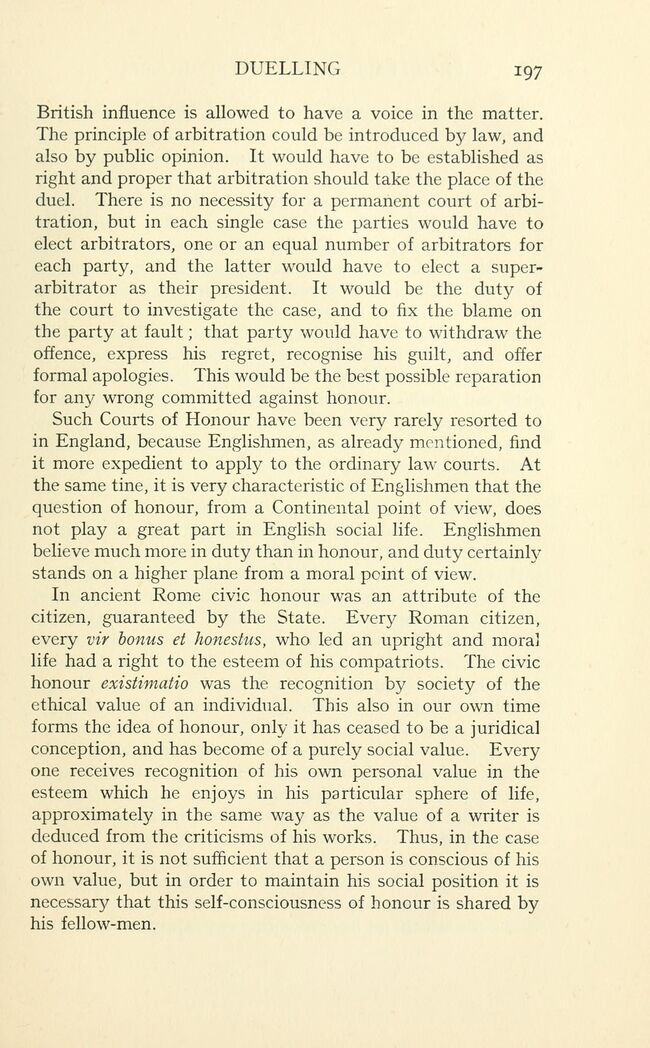
Full resolution (JPEG) - On this page / på denna sida - XIV. The difference between the English and Russian point of view upon duelling

<< prev. page << föreg. sida << >> nästa sida >> next page >>
Below is the raw OCR text
from the above scanned image.
Do you see an error? Proofread the page now!
Här nedan syns maskintolkade texten från faksimilbilden ovan.
Ser du något fel? Korrekturläs sidan nu!
This page has never been proofread. / Denna sida har aldrig korrekturlästs.
DUELLING
197
British influence is allowed to have a voice in the matter.
The principle of arbitration could be introduced by law, and
also by public opinion. It would have to be established as
right and proper that arbitration should take the place of the
duel. There is no necessity for a permanent court of
arbitration, but in each single case the parties would have to
elect arbitrators, one or an equal number of arbitrators for
each party, and the latter would have to elect a
super-arbitrator as their president. It would be the duty of
the court to investigate the case, and to fix the blame on
the party at fault; that party would have to withdraw the
offence, express his regret, recognise his guilt, and offer
formal apologies. This would be the best possible reparation
for any wrong committed against honour.
Such Courts of Honour have been very rarely resorted to
in England, because Englishmen, as already mentioned, find
it more expedient to apply to the ordinary law courts. At
the same tine, it is very characteristic of Englishmen that the
question of honour, from a Continental point of view, does
not play a great part in English social life. Englishmen
believe much more in duty than in honour, and duty certainly
stands on a higher plane from a moral point of view.
In ancient Rome civic honour was an attribute of the
citizen, guaranteed by the State. Every Roman citizen,
every vir bonus et honestus, who led an upright and moral
life had a right to the esteem of his compatriots. The civic
honour existimatio was the recognition by society of the
ethical value of an individual. This also in our own time
forms the idea of honour, only it has ceased to be a juridical
conception, and has become of a purely social value. Every
one receives recognition of his own personal value in the
esteem which he enjoys in his particular sphere of life,
approximately in the same way as the value of a writer is
deduced from the criticisms of his works. Thus, in the case
of honour, it is not sufficient that a person is conscious of his
own value, but in order to maintain his social position it is
necessary that this self-consciousness of honour is shared by
his fellow-men.
<< prev. page << föreg. sida << >> nästa sida >> next page >>